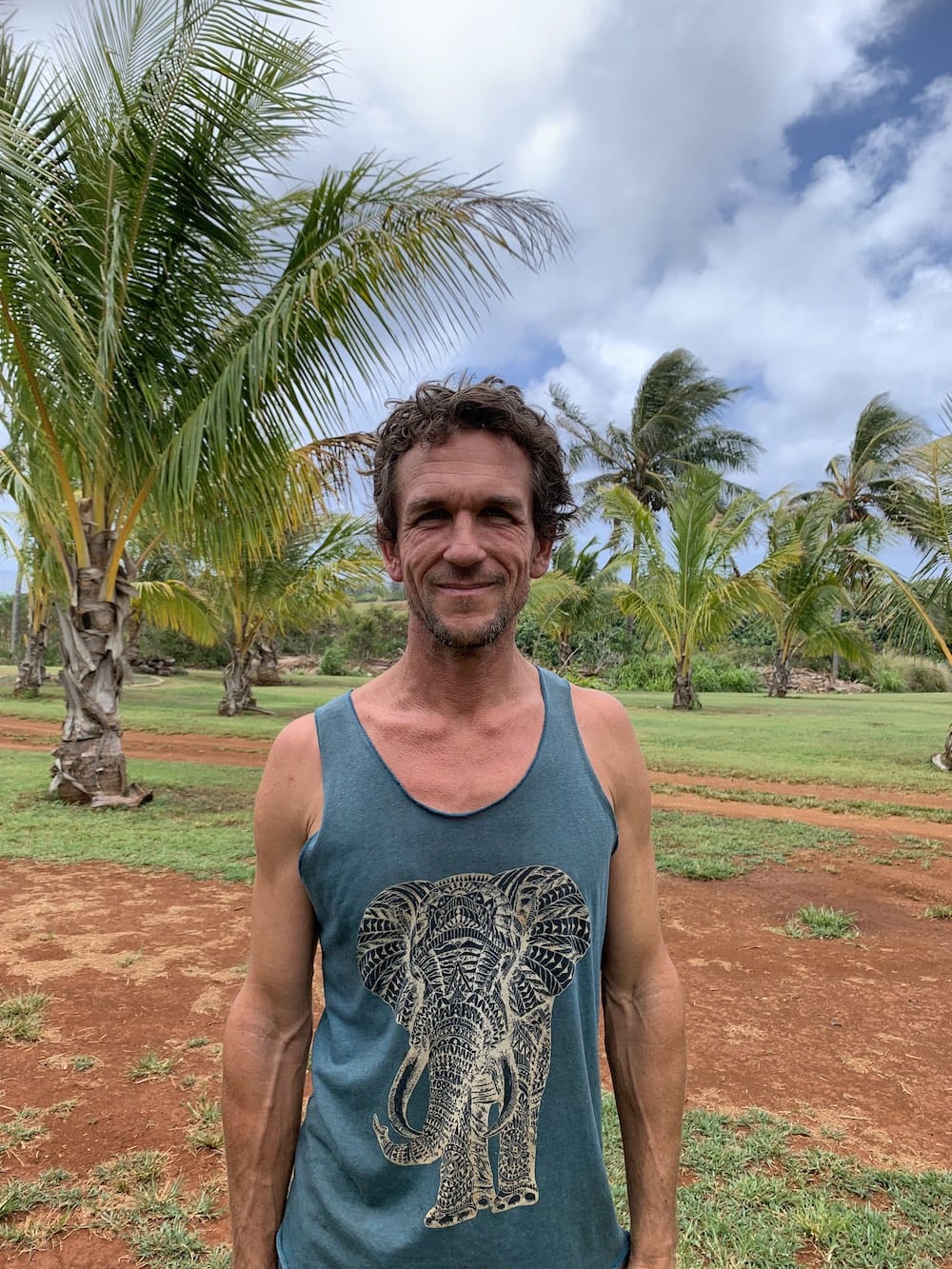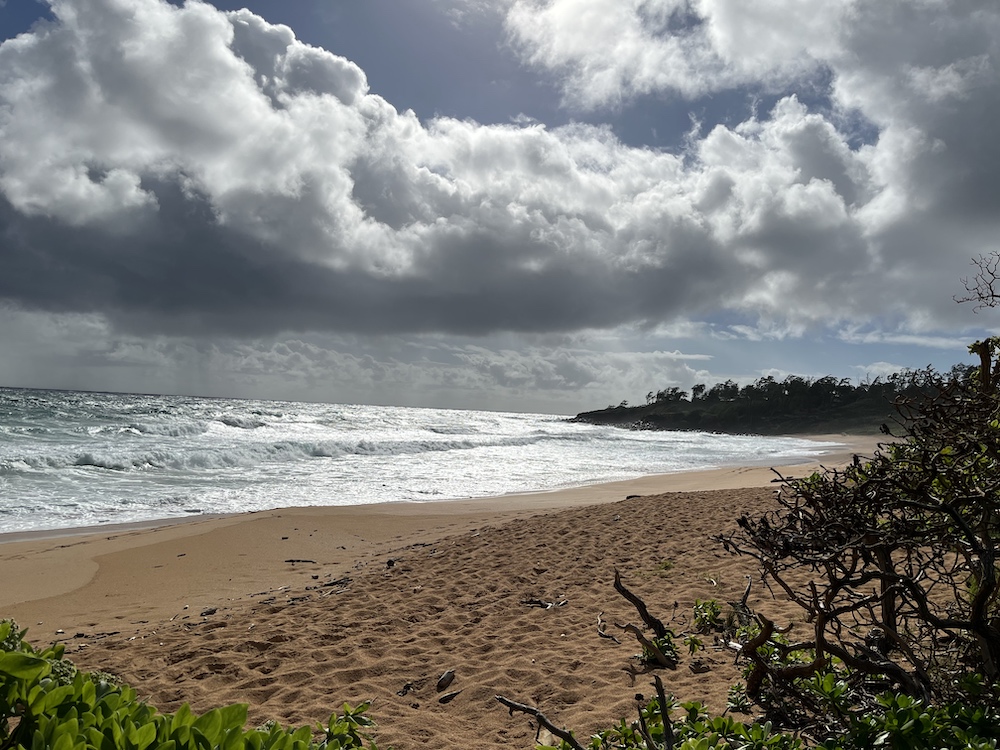Old Tech New Tech You Tech Through Tech

I interviewed wild guy Joybi Joyner, an amazing man who has spent the vast majority of his adulthood living in the wilderness, about “Old Tech, New Tech, You Tech, Through Tech.” We met last winter when I got to camp with him over the course of a couple weeks in Kauai.
I was traveling with my friend, Anna Birkas, (who I interviewed in Season 1 about her Chickfly “Pants Revolution”) and her son, and my son on a fantastic adventure. Joybi is Anna’s brother, and I heard a lot of stories about how he lives his life on the edge of the modern world.
Upon meeting him, Joybi took us to different places on the island to camp in the wilderness. We started our fires with our own hands, using a friction fire kit that Joybi had made from local woods. We kept the cook fires burning with the dead, dry wood that we scavenged from the areas surrounding our camping area.
We feasted on wild pig that Joybi had hunted; he apparently gets called when people have pigs destroying their gardens (pigs are by the way an invasive species in Hawaii who wreak havoc on landscapes both because there are no big predators to keep the pig population in check and because they are an incredibly resilient animal who can adapt to lots of different situations and food sources). It was an honor to eat the wild boars that Joybi had caught using a bow and arrow, nourishing ourselves deeply.
Joybi also taught the boys how to set simple snares, which were absolutely effective (they successfully caught a couple semi-feral chickens that we snuggled but then actually released because we had such an abundance of wild pork to eat).
Joybi has become a local educator in his community, inviting people to come partake of his wild pork harvests while learning primitive skills. Although he has spent many years living in the wilds, these days he is living in a tiny house that he built himself.
He has a couple different gardens on the sides of his house where he grows food using the and I quote him here “poke a stick” technique —basically, the tropical climate where he lives is so consistently warm and moist that all one needs to do is shove a cutting in the ground and make sure it gets enough water to take root. I have fantasies about living in Hawaii someday, and the plants are definitely a huge part of that.

On my last trip to Kauai, I reached out to Joybi about recording a podcast. He agreed, and I loved how many questions he had for me —not about the content of the podcast, but about my intentions for creating a podcast, what I wanted to accomplish with this impulse, and how was I following my intuition to bring “The Positive Fantastic” to fruition.
We discussed the importance of a good question, and decided to improvise our interview, tracking the unfolding of the conversation and what was up for both of us. I brought a quart of herbal tea to share with Joybi over our podcasting time —a blend of mamaki, butterfly pea vine, tulsi, and passionflowers that were from another friend’s garden on the island. We sipped this delicious brew while we shared about what we wanted to bring forth in our podcast episode.
We connected about Joybi’s passion for sailing. Sailing has been something of a dream for me for many years, and although I have very little experience on the open water, my eyes get wider, and I listen deeper whenever anybody mentions that they sail.
Joybi’s boat sits behind his tiny house, waiting for the right moment to get back on the water. The theme of having an anchor abroad your craft came up a lot in our conversation. We travelled some big waters and rode some interesting waves as we talked story in metaphors, curious about how to thrive through everything that is happening in the world today.
We also spent a lot of the interview discussing the fascinating juxtaposition between the ancient ways humans have lived for thousands of years and the modern ways that things are changing so quickly. Joybi reflected on the balance of being out in the bush and situated in the community so as to be available to share the skills of living life outdoors.
He is particularly interested in how we can navigate these times successfully with the merging of old technologies and new technologies. Playing on Dr. Seuss, I decided to call this episode “Old Tech, New Tech, You Tech, Through Tech,” as we all attempt to make sense of ourselves in relationship to technology.
Recent Comments